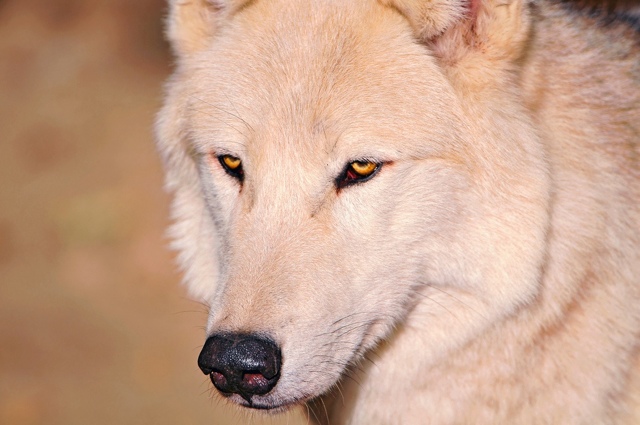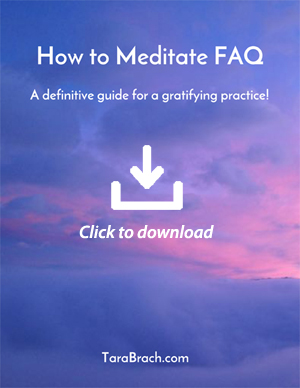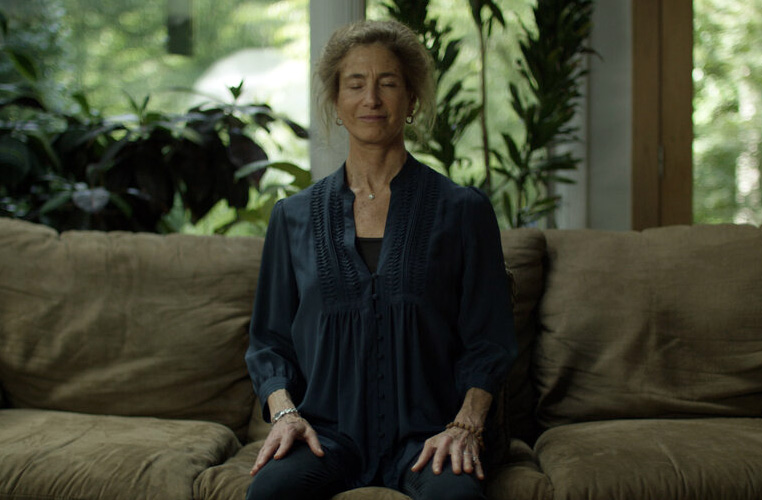After the September 11, 2001 terrorist attacks, as many people feared an ongoing and vicious spiral of retaliation and global violence, a wonderful and well-known Cherokee legend went viral on the Internet: An old grandfather is speaking to his grandson about what causes the violence and cruelty in the world. “In each human heart,” he tells the boy, “there are two wolves battling one another—one is fearful and angry, and the other is understanding and kind.” The young boy then asks, “Which one will win?” His grandfather smiles and says, “Whichever one we choose to feed.”
It’s easy to feed the fearful, angry wolf. Especially if we’ve experienced great wounding, the anger pathway can become deeply ingrained in our nervous system. When our old sense of injury or fear is triggered, the intolerable heat and pressure of anger instantly surges through us. Our attention gets riveted on the feelings and thoughts of violation and all we want is revenge. Often before we have any sense of choice, the nasty comeback is out of our mouth, we’ve slammed a door, hit send on an ill-advised e-mail, put someone down behind his back.
Yet, we do have a choice. Meditations that train the heart and the mind directly deactivate the anger pathways that propel our habitual behaviors. While the limbic system acts almost instantaneously, we can develop a response from the frontal cortex—which includes the social centers involved with compassion—that interrupts and subdues the reaction. This is where cultivating mindfulness comes in.
Mindfulness is the “remembering” that helps us pause and recognize what’s happening in the present moment. Once we’ve paused, we can call on the higher brain centers to open new possibilities. We can soothe ourselves, recall another person’s difficulties and vulnerability, and remember our own goodness and strength. No matter how painfully we’re triggered by the world’s violence and insensitivity, we can direct our attention in ways that carry us home to our intrinsic sanity and good-heartedness. This awakening is our evolutionary potential: For the sake of our own inner freedom and the well-being of others, we can intentionally feed the understanding, kind wolf.
Often, our first instinct is to protect our wounds by armoring ourselves with hatred and blame. Forgiveness, which allows us to let go of this armor, becomes possible as we bring a full, compassionate presence to our underlying vulnerability. Such presence loosens our identification with the thoughts and feelings of anger, and uncovers a heart space that is naturally open, inclusive, and warm.
Yet, this seldom happens suddenly or irreversibly. If we’re resentful and at odds with someone, it can take many rounds of intentional presence with our own hurt or fear until our self-compassion opens us to more acceptance and understanding. And when our grievance expresses as full-blown hatred, or when we feel deeply violated, forgiveness can seem out of reach or even impossible.
Forgiveness can also seem like a bad idea. We may be afraid, for instance, that if we let go of blame, we’re betraying our own emotions and setting ourselves up for further injury. We may feel that if we forgive, we’re condoning a person’s hurtful behavior and not honoring our right to be respectfully treated. Maybe we feel that if we forgive someone, we’ll be stuck feeling that we are the ones to blame. These fears are understandable and need to be recognized, but they are based on a misperception.
Forgiveness means letting go of aversive blame; it means that we stop feeding the fearful, angry wolf. It does not mean that we dismiss our intelligence about who might hurt us or that we stop taking actions to protect ourselves and others from harm. We all need to be able to tell who might betray our confidences, take our money, misunderstand our intentions, and abuse us physically or mentally. And when someone threatens our own or others’ well-being, we need to find effective ways to communicate our concerns, set boundaries, and determine consequences for harmful actions. We can dedicate our lives to preventing harm, while still keeping our hearts free of aversive blame.
Essentially, forgiving means not pushing anyone, or any part of our own being, out of our heart. By this I mean that even if we decide that it’s unhealthy to ever see a certain person again, we still find a way to hold him or her with goodwill. Taking this kind of refuge in unconditional love is courageous and challenging. Choosing to feed the compassionate wolf means stopping the war—the blaming thoughts and punishing actions—and opening directly to the pain of our vulnerability.
People often tell me stories of great betrayal and wounding, and ask, “How can I possibly forgive her after she had that affair?” “How can I forgive him for physically abusing me as a child?” When we try to forgive someone prematurely, we usually succeed only in papering over our anger and underlying hurt. So, I encourage a shift in focus: “This isn’t the time for forgiving; it wouldn’t be possible or real at this point,” I might say. “Right now, what needs attention is the place inside you that is hurting and afraid. This is the time for offering a compassionate presence to your own heart.” Compassion for oneself is the very essence of a forgiving heart.
Many people in my classes and workshops have said that when they stop feeding the angry wolf and instead open to their own vulnerability, it feels like a homecoming. As one person put it, “Instead of focusing on the person who hurt me, I started down a path of freeing myself.” We can either “get back” at someone and let the wound fester, or attend to self-healing. Feeding the angry wolf may come more easily, but learning to stay present with our inner life connects us with our goodness.
My first book, Radical Acceptance, came out soon after the United States launched the 1993 invasion of Iraq. As I traveled from city to city, many people asked me whether we were supposed to be radically accepting of our country’s militancy. “How can acceptance and activism go together?” they’d say. It’s a good question.
I often responded with my own story. In the weeks before the invasion, I read the newspapers with an increasing sense of agitation. I couldn’t stop thinking about the men in our administration who were responsible for what seemed an inevitable next step in the global escalation of violence. Just seeing their pictures in the paper would arouse huge waves of anger and hostility. Each day, I started becoming more and more aware of how creating an enemy in my mind was yet another form of violence.
So, I decided to start a newspaper meditation. I’d look at the headlines, read a bit, then stop. In that pause, I would witness my thoughts and allow myself to acknowledge my growing outrage. Then I’d investigate, letting the feelings express themselves fully. Almost every day, as I’d open to anger and feel its full force, it would unfold into fear—for our world. As I stayed in direct contact with the fear, it would unfold into grief—for all the suffering and loss. And the grief would unfold into caring about all those beings who were bound to suffer from our warlike actions.
My country was feeding the aggressive wolf, and the pain of that was heartbreaking. Sitting with the feelings that arose in my newspaper meditation left me raw and tender. It reminded me that under my anger and fear was caring about life. And it motivated me to act, not from an anger that focused on an enemy, but from caring.
Releasing the armor of anger—stopping the war and opening to vulnerability—takes tremendous courage and dedication, yet what makes it possible is our innate longing to be whole and loving and free.
Whether we are present with garden-variety blame, the aversion that arises from abuse, or the rage that is a legacy of historic injustice, we all have the capacity to step out of trance and come home to our awakened heart. It’s possible between people of different races after generations of violations, and it’s possible between family members who have been painfully estranged. Whatever your situation and history with others, it’s possible to decide to no longer push anyone out of your heart. You can’t will forgiveness, but you can be willing. If it is your sincere intention to forgive, the door is already open.
Adapted from True Refuge (on sale January 2013)
Enjoy this talk on Forgiving Your Way to Freedom
For more information visit www.tarabrach.com



